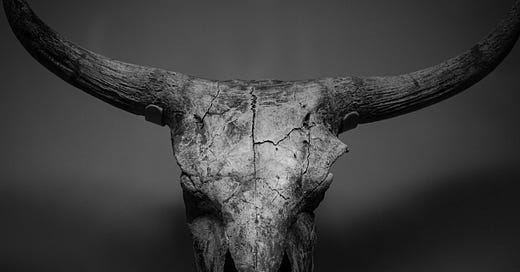
In shape-shifting times when we wander through the land, psyche, and soul, looking for our place, we are open to all the wisdom and wild consciousness that creates and lives throughout the universe.
We become open vessels through which all this cosmic knowledge weaves reality, creating and destroying—leaving us unsettled, looking for answers. This profound experience morphs us, for we are flooded with deep wisdom but sometimes left with no answers. We feel the urgency of the land and the profound reasoning of life consciousness that creates everything.
In our (small) western mind, we try to synthesize it, to name it. But to name it is to tame it. Taming it confines the meanings, simplifying its wild melodies and textures. It leaves us out of the mystery. We have to sit with it without categorizing it, without trying to name it, and without giving it a final form.
We need to feel our body and psyche dissolve and merge with the entities that contact us. With the flood of the universal consciousness flowing through us, we become porous to all voices, rhythms, pulses, and stories. When we feel open by this ancient urge to flow and create, instead of looking for names and frameworks, we need to look for stories, characters, poetics, nuances, metaphors, and symbols that, with integrity, carry within all there is. Because to name it is to tame it. Hence, we must expand and collapse our understanding of this poetic and mythic reality so that our psyche and soul can once again begin to encompass all the ancient complexities that sustain us. We need to re-awaken the immanent possibilities of the soul.
In western culture, the nameless don't exist in the objectifying reality. The things that have no name lurk in the shadows of the invisible. They are discarded, ambiguous, and neglected. So, we feel this urge to name things, to make reality more real.
To name it is to tame it. In a western way, to name it is to objectify part of this vast complexity, losing the vital thread that weaves and co-creates us. We have to be open to this thread of life. We have to follow it with fascination, through cycles and places.
Furthermore, we have to respect and honor it. We do not need to understand everything. When naming things, being threads of consciousness, places, or children, we lend them a resonance, composed with sounds and meanings, but in doing so, we may not include (some of) the original energy, the wild emergence that was born with what we are trying to name. To name it is to tame it.
In First People societies, naming ceremonies are vital in weaving together the more-than-human community. Giving a name is the task of connecting with the whole. We must observe and listen to the story's unfolding resonance for the right name to emerge.
We must unlock ourselves from space-time constraints and remember to see and hear fully.
The Sanctuary
My current line of work keeps me looking for stories of place, and myths, constantly searching for different versions of local folktales. One of my motivations to keep unearthing and recovering the submerged layers of my culture, is to rescue other ways of relating, different forms …
On behalf of Immanence
Immanence is ancient but widely forgotten. In a colonized meaning, it has an inferior quality, like it is a minor thing, but it has to do with entanglement and inter-dependence, with a secret and vital movement of continuous becoming. Immanence has to do with textures, and feelings amidst a hands-on experience, with all th…
Therapy for worth and control
Here and now, we are led to believe that we need to produce our value, and we are taught war tactics. In adapting to western human society, we need to find our place and authentic power by affirming our talents and discovering our original voice. Contemporary culture suggests that these paths are activated isolated and






